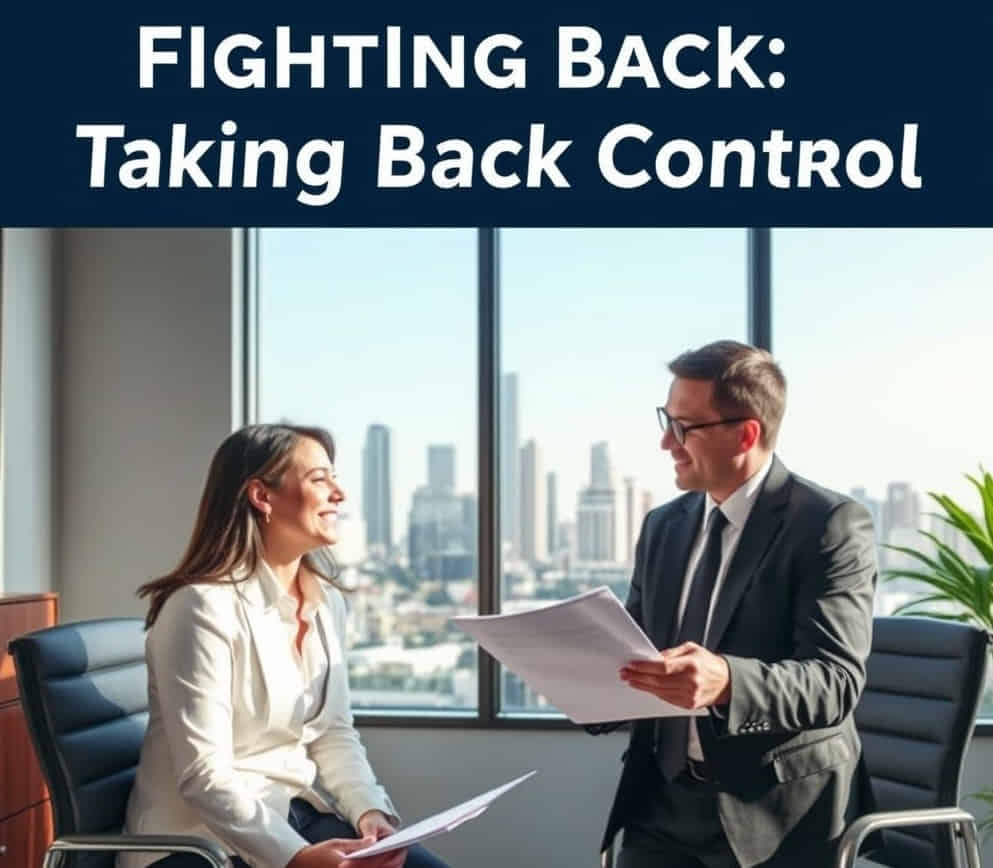Termination for Taking Family or Medical Leave: Understanding Your Legal Rights
You’ve just returned from caring for your ailing parent, a loved one who depended on you for comfort and support. You’ve done everything by the book—filed the necessary paperwork, communicated with your employer, and even checked in during your leave. But instead of a welcome back, you’re blindsided by a termination notice. The knot in your stomach tightens. Is this even legal?
The short answer? It might not be. Federal and California laws exist to protect workers like you. But let’s face it—laws alone won’t make things right. That’s where understanding your rights and seeking expert legal help can turn the tide in your favor. Speaking with a Los Angeles wrongful termination attorney could be the first step toward justice.
Family and Medical Leave Laws: Your Armor Against Unfair Treatment
When life throws a curveball—be it a medical emergency or the birth of a child—the Family and Medical Leave Act (FMLA) and the California Family Rights Act (CFRA) are your safety nets. Together, they offer job protection and peace of mind. But here’s the thing: Employers don’t always play fair, and that’s when your armor needs reinforcement.
What These Laws Do for You
- Job Security: No, your employer can’t just replace you while you’re on leave. You have the right to return to your same or a comparable position.
- Continued Benefits: Your health insurance stays active, as though you never stepped away.
- Flexible Leave Options: Need to take leave in chunks or reduce your work hours to manage a condition? Both FMLA and CFRA allow for intermittent leave when necessary.
Military Family Protections
- FMLA Perks: If your spouse is deployed, you’re entitled to leave for things like childcare arrangements or attending deployment-related events. For injuries sustained during service, you can take up to 26 weeks to care for them.
- CFRA Protections: California mirrors some FMLA provisions for military families, allowing leave for exigencies tied to a loved one’s active duty.
These protections aren’t just paperwork—they’re promises. Yet, some employers gamble that you don’t know them well enough to stand your ground.
Wrongful Termination: When the Line Is Crossed
Not every firing is illegal, but when it violates your rights under FMLA or CFRA, it’s called wrongful termination. This isn’t just a breach of trust—it’s a breach of the law.
What Retaliation and Discrimination Look Like
- Retaliation: Let’s say you return from CFRA leave, and suddenly your job performance—once praised—becomes an issue. A termination follows soon after. Coincidence? Hardly.
- Discrimination: Imagine two employees taking leave—one for a vacation, the other under FMLA. Only the latter faces termination. That’s not just unfair; it’s illegal.
Employer Excuses That Don’t Hold Water
- “It’s not personal—just company restructuring.” If you’re the only one let go after taking leave, that’s a red flag.
- “You didn’t give proper notice.” As long as your leave complied with the law, this excuse won’t fly.
Employers know how to dress up unlawful actions as business decisions. A skilled Los Angeles wrongful termination attorney knows how to strip away the disguise.
What to Do When You’re Fired Unfairly
It’s natural to feel overwhelmed, but this isn’t the time to panic. It’s the time to act—methodically and decisively.
1. Preserve Evidence Like a Detective
- Start a Log: Note down every odd conversation, critical email, or suspicious comment.
- Save Documents: Performance reviews, termination letters, and leave approvals can become your smoking gun.
- Request Personnel Records: California law says you’re entitled to them, so don’t hesitate to ask.
2. File a Complaint with the Right Agency
- California Department of Fair Employment and Housing (DFEH): For CFRA violations, start here.
- Equal Employment Opportunity Commission (EEOC): If FMLA rights are trampled, this federal body is your ally.
3. Know the Timelines
- DFEH Deadline: Typically, you have one year to file a complaint, but exceptions exist for delayed discovery of violations.
- EEOC Deadline: Generally 300 days from the alleged violation, though this varies in some cases.
Filing may feel daunting, but it’s your first step toward justice. For additional clarity, consult one of the experienced wrongful discharge attorneys in Los Angeles.
The Role of a Wrongful Termination Attorney: Turning the Tide
Facing a wrongful termination case without legal help is like heading into battle unarmed. A skilled attorney not only levels the playing field but tilts it in your favor.
What a Lawyer Does
- Builds Your Case: From uncovering hidden patterns of discrimination to debunking employer defenses, they know where to dig.
- Negotiates Fiercely: Many cases end in settlements that can include back pay, emotional distress damages, and more.
- Handles Court Battles: If push comes to shove, your attorney ensures your story is heard—and believed.
What to Expect When Hiring an Attorney
- Fee Structures: Most attorneys take wrongful termination cases on contingency, meaning they don’t get paid unless you win.
- Choosing the Right Lawyer: Look for someone with a track record in employment law, strong local expertise, and a willingness to fight for you.
Consulting a Los Angeles wrongful termination attorney can provide peace of mind and clarity during this challenging time.
Damages: What Can You Recover?
Winning isn’t just about proving your case; it’s about restoring what you’ve lost—and then some.
- Back Pay: Reclaim wages lost from the time of termination.
- Front Pay: Compensation for future income you would’ve earned.
- Emotional Distress: Because the mental toll of wrongful termination is real.
- Punitive Damages: When the employer’s misconduct is especially egregious.
- Legal Costs: Your attorney fees and court costs may be covered.
Justice doesn’t just settle scores—it secures your future.
But Wait—What About the Employer’s Side?
Employers will have their defenses, and understanding them is part of crafting a winning strategy.
- Legitimate Business Reasons: Was your role genuinely eliminated?
- Performance-Based Termination: Can they prove poor performance with documented evidence?
- Failure to Comply with Leave Policies: Did you provide proper notice and documentation?
Anticipating these arguments is half the battle—and the reason you need legal counsel.
Your Next Move: Take Control of Your Case
Being fired after taking leave feels personal because it is. But it’s also illegal—and that means you have power. By acting swiftly, documenting meticulously, and hiring the right attorney, you can transform a moment of injustice into a victory.
If this sounds like your story, don’t wait. Reach out to one of the experienced wrongful discharge attorneys in LA or a trusted Los Angeles wrongful termination attorney today. Your job, your rights, and your dignity are worth fighting for.



